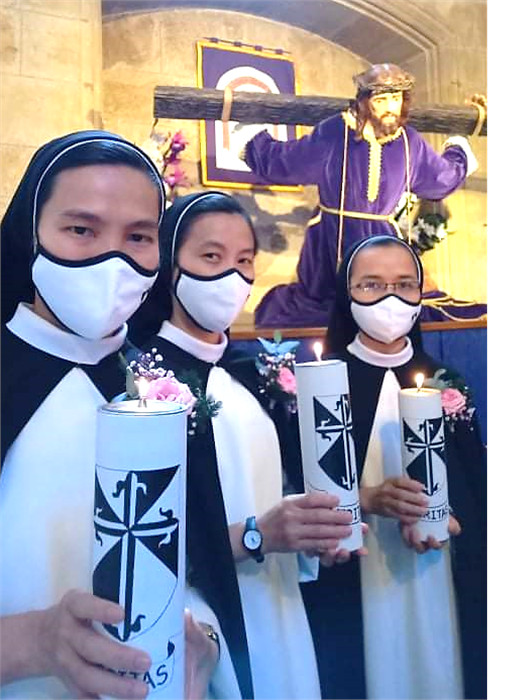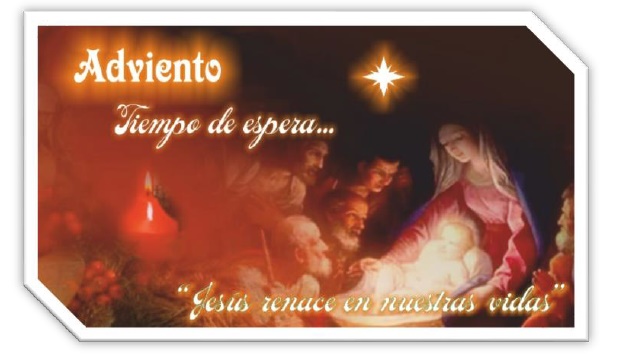 Queridas hermanas,
Queridas hermanas,
Un año más el Señor nos regala la posibilidad de celebrar la fiesta de Nuestro Padre santo Domingo. Este año en el contexto del octavo centenario de su «dies natalis” cuyo tema de celebración es “En la mesa con Santo Domingo de Guzmán”. Dicho lema deriva de la pintura denominada «Mascarella» la cual es la pintura más antigua sobre Santo Domingo y que refleja uno de los pilares fundamentales de la Familia dominicana «La Vida Común”; una mesa en torno a la cual se sientan sus hijos/as como familia, en comunión y comunidad.
Y es que la vida comunitaria para Santo Domingo constituye un valor y un pilar fundamental. Teniendo que escoger una Regla para la Orden, escogió la de San Agustín que comienza recordando a los religiosos que «ellos habitan en una misma casa para formar una sola familia y tener un solo corazón y una sola alma en Dios». La vida comunitaria es el suelo fértil donde cobra fuerza la misión, la predicación, por eso a sus novicios les pedía dos cosas antes de aceptarlos en la Orden: obediencia y compromiso de vida comunitaria.
Queriendo imitar en toda la vida de los Apóstoles, Domingo tenía como modelo para la comunidad de sus hermanos la primitiva comunidad apostólica. En esta comunidad los primeros cristianos «acudían asiduamente a la enseñanza de los apóstoles, a la comunión, a la fracción del pan y a las oraciones. Todos los creyentes vivían unidos y tenían todo en común. Alababan a Dios y gozaban de la simpatía de todo el pueblo”.
Domingo vivía integralmente la vida comunitaria. Participaba siempre en los actos de la vida común y se sometía en todo a la comunidad. «Observaba en todo y por todo la Regla -dicen los testigos en el proceso de canonización- y no se dispensaba con facilidad. Seguía totalmente a la comunidad en el coro, en el comedor y en los demás lugares. » En cuanto a las comidas y a los horarios, se adaptaba en todo a la comunidad, y aunque pasase con mucha frecuencia las noches orando en la iglesia, participaba siempre con sus hermanos en el rezo matutino». Pero la vida comunitaria no se realiza sólo con la presencia en los actos comunes, podemos estar presentes físicamente pero muy lejos afectivamente; de todas es sabido los gestos y detalles de cercanía y ternura de nuestro padre para con las monjas y hermanos. Santo Domingo nos enseña que la vida en común exige caridad con las debilidades de cada hermana, inclusión y participación activa de cada una en la marcha de la comunidad, alegrarse con la que está alegre y compadecer a la que está triste, escuchar y aceptar a todas.
Significa también poner todo en común; no sólo lo material, el fruto del propio trabajo, sino también los valores, dones y cualidades de los que goza cada hermana; compartiendo las propias ideas, ayudándose mutuamente y anteponiendo el bien común al bien personal.
Creo que si Domingo fue un ejemplo de vida comunitaria fue debido a su humanidad, porque era plenamente humano.
La humanidad de Domingo está hecha de contrastes: vigor y ternura, decisión y apertura, firmeza y compasión.
Domingo tuvo que superar muchos obstáculos, muchas adversidades en su vida, sin embargo, nada de dureza, rigidez e intolerancia se descubre en su carácter. Según la memoria de quienes convivieron con él, Domingo destacaba sobre todo por su ternura, sensibilidad y compasión, virtudes que humanizan.
Vivió y experimentó plenamente lo que afirma Papa Francisco “sólo la ternura puede cambiar las personas”.
A Domingo se le rompía el corazón y se le conmovían las entrañas ante el sufrimiento y la necesidad ajena. Salía de sí mismo para ponerse en el lugar del otro, sintonizaba fácilmente con el dolor y alegría de los demás. Tenía un trato cálido y humano con todos, rasgos de su auténtica humanidad; no sólo se compadecía internamente, también reaccionaba ante las injusticias y necesidades de los demás. Conocemos muy bien los múltiples episodios de su vida en que intentó remediar el mal ajeno a cambio incluso de entregar su propia vida.
El Maestro de la Orden, Fr. Gerard, nos interrogaba en una de sus cartas a causa del jubileo: ¿Qué significa para nosotros estar a la mesa con santo Domingo aquí y ahora?
Hemos de hacernos esta pregunta en este tiempo en el que aún el miedo al contagio del Covid 19 nos amenaza e interpela y puede servir como excusa para “mantener las distancias”.
Pienso que sentarse hoy a la mesa de Domingo implica ante todo estar atentas a las necesidades de la hermana, a la más débil, a la más necesitada y a la que aparentemente es autosuficiente; escuchar pacientemente a cada una, sus miedos, sus preocupaciones, sus ansias y promover que cada hermana pueda expresar libremente sus preocupaciones y ser consolada con respeto y amabilidad. No todas tenemos la misma sensibilidad y vivimos los “temores” de igual manera, “las más fuertes han de sobrellevar las flaquezas de las más débiles”.
Sentarse hoy a la mesa de Domingo nos compromete a atrevernos a hablar mutuamente y con veracidad de lo que nos preocupa en nuestra comunidad, de lo que nos molesta y de lo que nos agrada y también de lo que preocupa a nuestros hermanos los hombres; para ello hemos de apoyarnos, sostenernos mutuamente y discernir seriamente qué es lo que hoy urge en nuestra sociedad.
Una comunidad no avanza ni humana ni espiritualmente si no se alimenta, se expresa y se sacramentaliza con gestos, actitudes y palabras. Sólo si expresamos nuestra humanidad y ternura como lo hizo nuestro padre podremos testimoniar la grandeza del amor y comunión y reaccionar ante los gritos de injusticia y necesidades de la humanidad. Domingo observa la realidad de su entorno y se implica y compromete para hacer un mundo un poco mejor.
Aprendamos de Domingo a prestar atención a las hermanas con las que convivimos, a asumir y acoger sus debilidades y vulnerabilidades, como él asumió la de los frailes con los que convivió, pero evitando cerrarnos en nosotras mismas y abriendo, como él hizo, nuestros ojos, oídos y brazos al llanto del necesitado.
Creo que Domingo se sentiría feliz hoy, viviendo en comunidades donde hay inquietud por quererse y apoyarse, y por discernir los signos de los tiempos para hacer que esta humanidad sea un poco menos doliente.
FELIZ FIESTA DE STO. DOMINGO. Que este año jubilar nos sirva para renovarnos seguiendo las enseñanzas de nuestro Padre.
Un fraternal abrazo y mi oración,
Sor Mª Asunción González, O.P.
Priora General
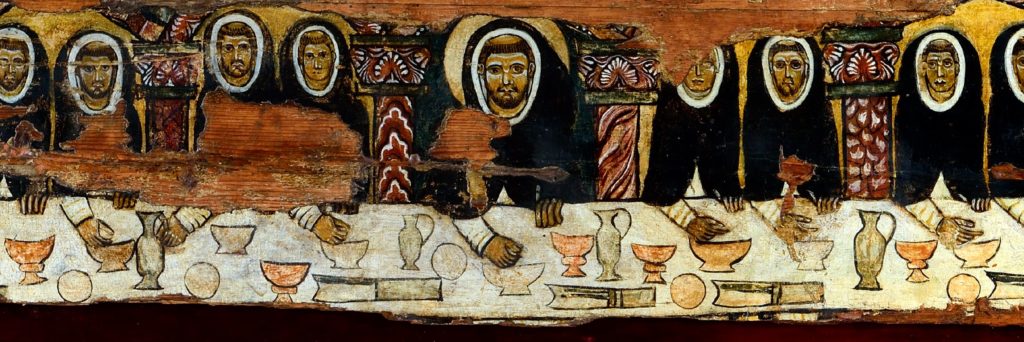
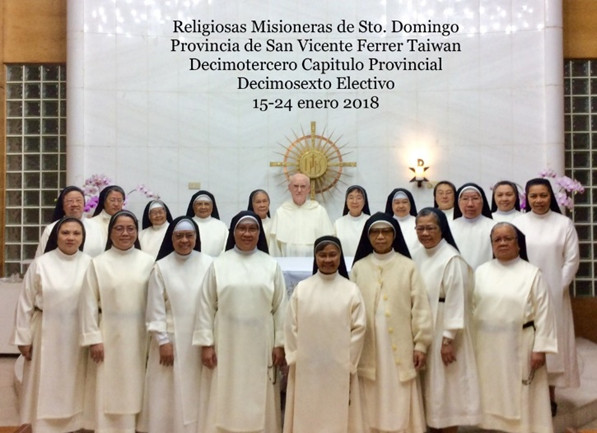
Para nosotras, las Misioneras, casi podemos elaborar un libro que narre las cosas buenas que el P. Solís ha hecho por nuestro Instituto sobre todo para las Provincias de Filipinas y Taiwán. Era un verdadero hermano, siempre disponible y dispuesto a ayudar y apoyar; bien sea para un retiro anual y mensual, formación permanente, confesión, ser celebrante-predicador de la Misa en las grandes ocasiones y profesiones religiosas
For us Misioneras, we can come up with a book narrating the good things which Fr. Solis has done for our Institute specifically for the Provinces of the Philippines and Taiwan. He is a true brother who was always available and disposed to help and assist; be it annual retreat, monthly recollections, permanent formation, confession, Holy Mass Celebrant-homilist on grand occasions and Religious professions

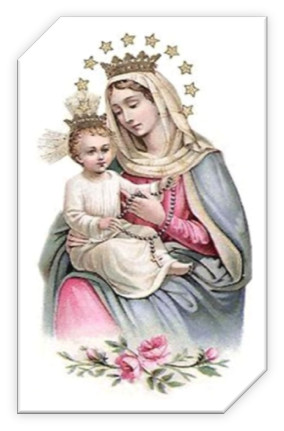

 El tema propuesto para este año es: “¿Una casa para todos? Renovando el Oikos de Dios”. Oikos es la palabra griega que significa “hogar” o “casa”; así mismo, el símbolo propuesto es la Tienda de Abraham, que representa nuestro compromiso de preservar un lugar para todos los que comparten nuestra casa común
El tema propuesto para este año es: “¿Una casa para todos? Renovando el Oikos de Dios”. Oikos es la palabra griega que significa “hogar” o “casa”; así mismo, el símbolo propuesto es la Tienda de Abraham, que representa nuestro compromiso de preservar un lugar para todos los que comparten nuestra casa común